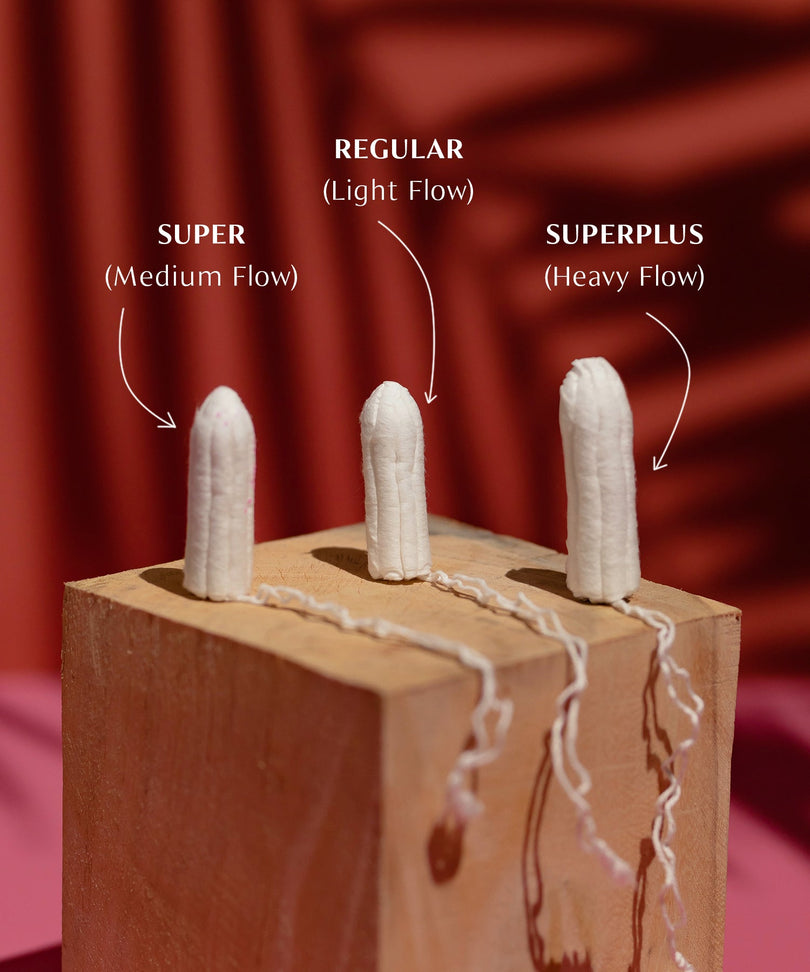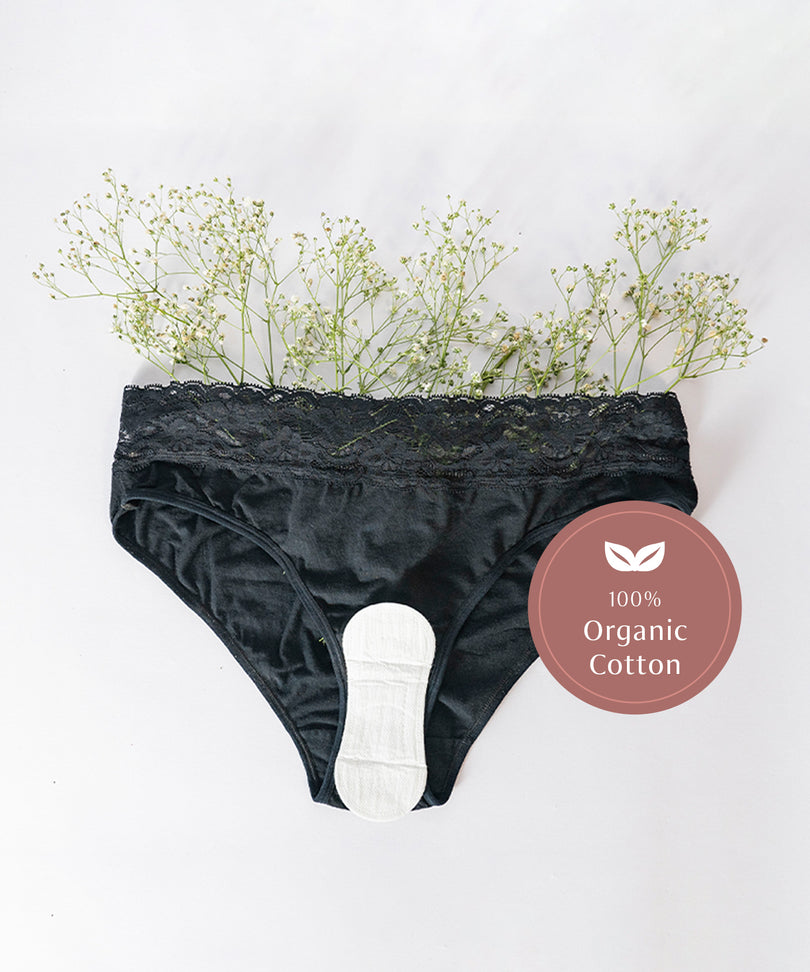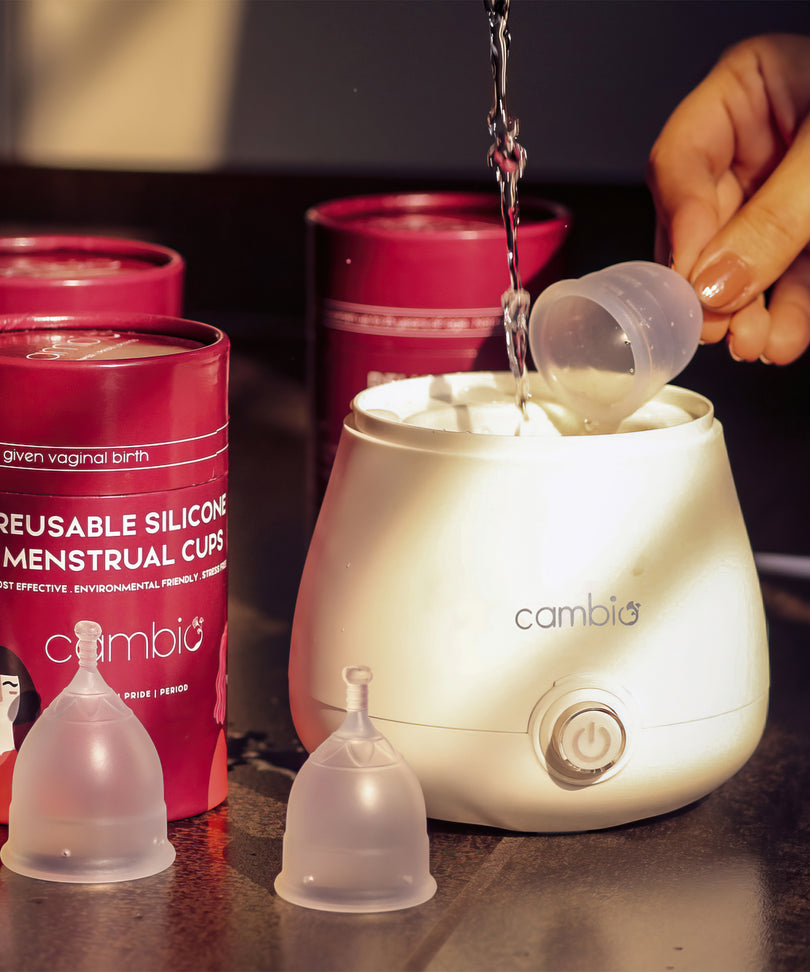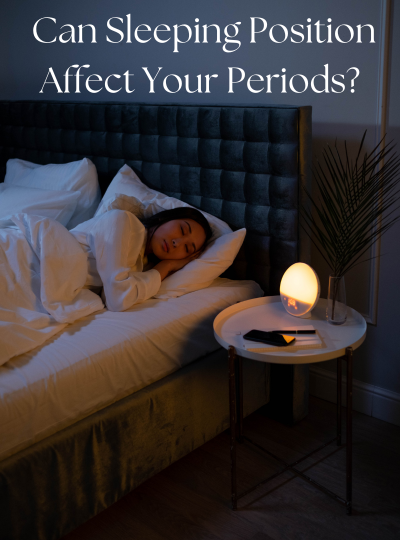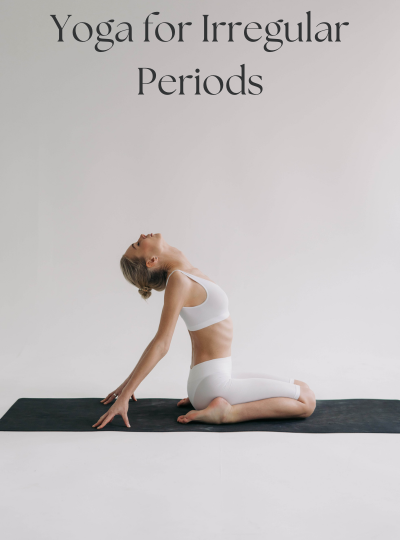The menstrual cycle is a natural process that occurs in women's bodies, and its regularity can vary from person to person. While there is no guaranteed method to control or induce the arrival of periods, some theories suggest that certain sleeping positions may influence the menstrual cycle.
In this article, we will explore the topic and provide you with informative insights on sleeping positions and their potential impact on the timing of your periods.
Can sleeping position affect your periods?
It is important to note that scientific evidence supporting a direct correlation between sleeping positions and the onset of periods is limited. However, anecdotal experiences and alternative medicine practices suggest that specific sleeping positions might help promote blood flow to the pelvic area, potentially influencing the menstrual cycle.
Best Sleeping Positions For Period Pains:
- a) Sleeping on your stomach: Some believe that sleeping on your stomach can apply gentle pressure to the uterus, potentially stimulating blood flow and encouraging the onset of menstruation. However, it is crucial to prioritize comfort and avoid straining your neck or back in this position.
- b) Sleeping on your back: This position is often recommended for overall spinal alignment and minimizing potential discomfort during sleep. While it may not have a direct impact on the timing of your periods, maintaining a relaxed and comfortable posture is essential for quality sleep.
- c) Sleeping on your side: Side sleeping, particularly on the left side, is generally considered the most beneficial position for blood circulation. It may help improve overall blood flow, including to the pelvic area, potentially supporting a healthy menstrual cycle.
Also read - How to delay your period?
Indirect Connection Between Sleep and Menstrual Cycle
Hormonal Regulation: Sleep plays a crucial role in hormonal balance. Disruptions to sleep, such as irregular sleep patterns or insufficient sleep, can affect the release of hormones like cortisol, insulin, and reproductive hormones. This, in turn, may impact the regularity of menstrual cycles.
Melatonin Production: Melatonin, a hormone that regulates sleep-wake cycles, is also thought to influence reproductive hormones. Some studies suggest that melatonin may play a role in regulating the menstrual cycle, and disruptions to melatonin production due to irregular sleep patterns may potentially affect menstrual regularity.
Stress Levels: Poor sleep can contribute to increased stress levels, and chronic stress has been associated with menstrual irregularities. Stress can affect the hypothalamus, a region of the brain that influences the menstrual cycle.
Temperature Regulation: While not directly related to sleep position, the body's temperature regulation can be affected by sleep quality and environment. Some studies suggest that temperature changes, especially during sleep, may influence the menstrual cycle.
Also read - What is the difference between spotting and period bleeding?
Period Insomnia
Some individuals may experience difficulty sleeping during their menstrual periods, a phenomenon sometimes referred to as "period insomnia". There are several reasons why sleep disturbances might occur around the time of menstruation:
Hormonal Fluctuations: Hormonal changes, particularly fluctuations in estrogen and progesterone levels, can impact sleep. These hormones play a role in regulating the sleep-wake cycle, and their variations during the menstrual cycle can affect sleep quality.
Pain and Discomfort: Menstrual cramps, back pain, and other discomforts associated with menstruation can make it challenging to find a comfortable sleeping position. Pain and discomfort may contribute to difficulty falling asleep or staying asleep.
Premenstrual Syndrome (PMS): Some women experience symptoms of PMS, including mood swings, irritability, and anxiety, which can also affect sleep. These symptoms may become more pronounced in the days leading up to menstruation.
Body Temperature Changes: Hormonal fluctuations can lead to changes in body temperature, and some individuals may experience hot flashes or increased sensitivity to temperature changes during their menstrual cycle. These fluctuations can impact sleep quality.
Also read - Things You Must Avoid During Periods
If you're experiencing period-related insomnia, consider the following tips to help improve your sleep:
Pain Management: Over-the-counter pain relievers or applying heat to alleviate menstrual cramps and discomfort may help improve sleep.
Comfortable Sleeping Environment: Ensure your bedroom is conducive to sleep. Keep the room cool, dark, and quiet, and invest in a comfortable mattress and pillows.
Relaxation Techniques: Practice relaxation techniques such as deep breathing, meditation, or gentle stretching before bedtime to help ease stress and promote relaxation.
Consistent Sleep Schedule: Stick to a regular sleep schedule, even during your period, to help regulate your body's internal clock.
Limit Stimulants: Reduce or eliminate caffeine and limit the intake of stimulants in the hours leading up to bedtime.
Also read - Can You Wash Your Hair During Periods?
How to Avoid Leaking on Your Period at Night?
Here are some tips to help avoid leaks and ensure a more comfortable night's sleep:
Use Overnight Pads or Tampons:
Choose sanitary products specifically designed for overnight use. These are often longer and more absorbent than regular pads or tampons.
Double Up:
Consider using both a tampon and a sanitary pad for added protection, especially if your flow is heavy. This combination can provide an extra layer of security against leaks.
Choose High-Absorbency Products:
Opt for pads or tampons with high absorbency to accommodate a heavier flow. Make sure to change them regularly to maintain effectiveness.
Change Before Bed:
Change your pad or tampon right before going to bed to ensure maximum absorbency during the initial hours of sleep.
Invest in Menstrual Cups:
Menstrual cups are another option to consider. They can hold more fluid than tampons and pads and are less prone to leaks when used correctly.
Use Period Underwear:
Period underwear is designed with built-in absorbent layers and can be worn alone or as a backup with other menstrual products. They provide an additional layer of protection.
Add a Liner or Pad on Top:
Place an extra panty liner or pad on top of your regular overnight pad for added security. This can help catch any leaks that may occur.
Position Your Pad Correctly:
Ensure that your pad is positioned correctly in your underwear. The back of the pad should be aligned with the back of your underwear to prevent leaks.
Sleep in a Comfortable Position:
If possible, try sleeping in a position that minimizes pressure on your pelvic area. This can help reduce the likelihood of leaks.
Protect Your Bedding:
Place a waterproof mattress cover or use dark-coloured sheets to protect your mattress and bedding from potential leaks.
Stay Hydrated:
Staying hydrated is essential, but try to limit fluid intake right before bedtime to minimize the need to use the bathroom during the night.
Conclusion
While no definitive scientific evidence supports the claim that specific sleeping positions can induce periods early, certain positions may positively influence blood flow to the pelvic area. However, it is essential to remember that the menstrual cycle is a complex process influenced by various factors. Prioritizing overall health, maintaining a balanced lifestyle, and seeking professional advice are vital to ensure a healthy menstrual cycle.
Read more
Tampons vs Pads, which one is better?
Why Use Organic Pads for Periods?


